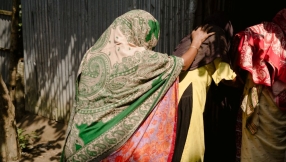How should the church approach cohabiting couples? Two perspectives
Marriage is qualitatively entirely different from cohabitation because it is undergirded by a completely different level of commitment. As such it enjoys many qualitative distinctions which flow from the greater level of stability that arises out of that commitment.
(This stability gains perhaps its most poignant expression through the fact that a child born to cohabitating parents has a nearly 1 in 2 chance of living in a one parent family by the time they are five whereas a child born to married parents faces only a 1 in 12 chance of finding themselves in such a situation).
The huge benefits arising out of this level of commitment are recognised in law which confers on the institution of marriage various protections not provided to those who have not been prepared to make the life-long, till death us do part commitment.
It would not be at all appropriate to confer some of these rights on cohabitees for at least two reasons. First, the current arrangement respects choice. If people want to marry and are prepared to make the life-long commitment and access the benefits then they can. If they don’t want to make that kind of commitment they can cohabit and be free from the obligations that come with it.
Second, in a culture that is terrified of commitment, providing a form of ‘commitment-lite’ cohabitation with some marriage protections will appeal as a half way house compromise and people will be even less willing to marry with the consequent effect that even less adults and children will benefit from the stability that is distinctively associated with marriage.
What Broken Britain really needs is enlightened public policy to foster the optimal child development environment which requires more and more children being brought up in stable married homes, not public policy that will make this increasingly unlikely by developing attractive commitment-lite alternatives to marriage.
Fleur Dorrell, Head of Faith & Policy at Mothers' Union
The number of cohabiting couples in Britain has now reached two million. Many of these partnerships will have dependent children. Many of the mothers and fathers of these children will believe that as long-term partners and parents they will have legal rights – or “common-law” rights. However, with the exception of cohabiting couples in Scotland who began their relationship before 2006, there are no rights under law. Couples can make a private legal arrangement, but are not currently protected under law.
How should a Christian organisation, devoted to supporting marriage and family life, approach cohabitation? There is a juxtaposition between advocating strongly, and singularly for marriage, and supporting the millions of children in this country whose parents cohabit, and who could be left vulnerable to financial insecurity and homelessness should the relationship break down.
Marriage, as research now shows, forms a substantially more stable environment for children to grow up in. Around 27% of cohabiting couples are likely to split before the 5th birthday of their child, compared with only 9% of parents who are married. Children, and the couple themselves, are likely to be happier, wealthier and the children more likely to do better educationally.
Marriage is, Mothers’ Union believes, the relationship institution therefore which represents the best possible outcome for the couple, and for stable family life. Mothers’ Union, through its Loving for Life programme, prepares couples for marriage, works hard in community to promote and affirm marriage, and offers support to relationships which breakdown.
Nevertheless, we cannot ignore the rights of families cohabiting. The lack of legal rights means that women cohabitees in particular can be at a severe disadvantage if their relationship breaks down or their partner dies. We believe governments should commit to supporting durable partnerships and stable families. We would welcome any consultation or change in the law that would strengthen family life and protect the welfare of children.
Alongside changes in the law pertaining to the rights of cohabitees, however, we will continue to advocate marriage as being of vital importance, both to families and to wider society. We continue to call for marriage to be recognised through the tax system and through other funding initiatives which will support relationships before their potential breakdown.













